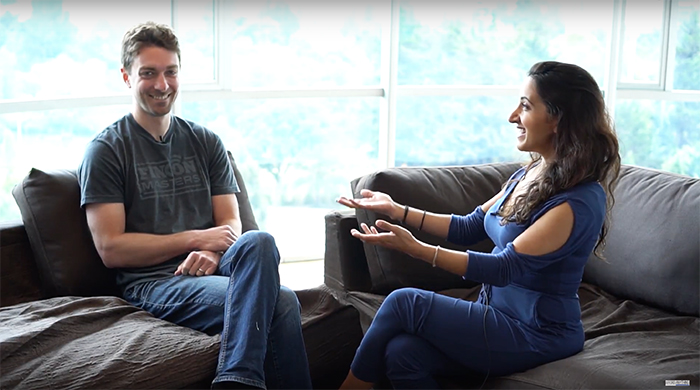
Brandon always wanted to be wealthy. He just didn’t know why.
“I don’t like fancy cars, and big houses just seem inefficient,” he said. “I just wanted to have money to manage.”
But in 2011, Brandon discovered the concept of financial independence.
“That just blew my mind — it was just like, oh, I can buy my freedom, and my freedom is something that I would love to spend my money on,” he said.
Brandon and his wife Jill had always been prodigious savers. They lived in a cozy home in Vermont with a mortgage of around $890 per month. They rarely ate at restaurants. They kept their thermostat chillingly low.
After Brandon discovered the idea of financial independence, he intensified his already-strong savings habits. He researched tax-savings and travel rewards. He learned about stock-picking before choosing a passively-managed approach. He created a blog and podcast, MadFientist, to motivate himself to keep learning and teaching.
He focused on index fund investing and based his projections on the 4 percent withdrawal rule. He developed multiple benchmarks:
- A portfolio that could cover his bare-bones cost-of-living.
- A portfolio that could cover both necessities and discretionary spending.
Within three years, Brandon and Jill reached financial independence.
And then what?
“You have this whole world that’s opened up to you,” Brandon said. “You have 60-plus years that you’re filling 365 days a year with something and you need to … start thinking about that.”
Brandon had spent years imagining life after reaching financial freedom: He’d travel nonstop. He’d launch entrepreneurial projects. He’d quit his job.
He thought it would be the perfect life.
But reality has its own ideas.
He grew weary of full-time travel. He lost motivation for entrepreneurial ventures. And to his astonishment, he realized he would be happy to keep his job for an extra couple of years — provided, of course, that he could work remotely from Scotland, where the couple had decided to move. (He finally resigned last year, at age 34.)
“You’ve already lost other sources of motivation, like impressing your colleagues or working up the corporate ladder or getting praise from your boss,” he said. “But then to lose money as a source of motivation – it was just insane to me. That’s something I’ve been trying to process for the past year.”
“Money is not the motivation, so what is?”
In the quiet space that unfolded, Brandon discovered new hobbies: exercising, cooking, music. He signed up for rock-climbing lessons. He began weightlifting. He’s recording an album.
“I’m focusing more on … creating things for the joy of creating them,” he said, “and the feeling of having something put out in the world that wasn’t there before.”
Last month, Brandon and I filmed an interview in Ecuador about building a meaningful life after the 9-to-5 grind. Check it out.
____
(I released our interview as a special Episode 100 celebration for my podcast. I also released these 19 seconds of ridiculousness for anyone who craves a mid-day distraction. Enjoy!)